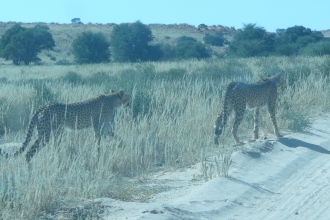
Kgalagadi visitors willing to pay for ecosystems supporting Khomani San
In three separate research briefs EPRU Research Fellow, Johane Dikgang and Senior Research Fellow, Edwin Muchapondwa, analyze the situation in the Kgalagadi Transfrontier Park (KTP) extending between…